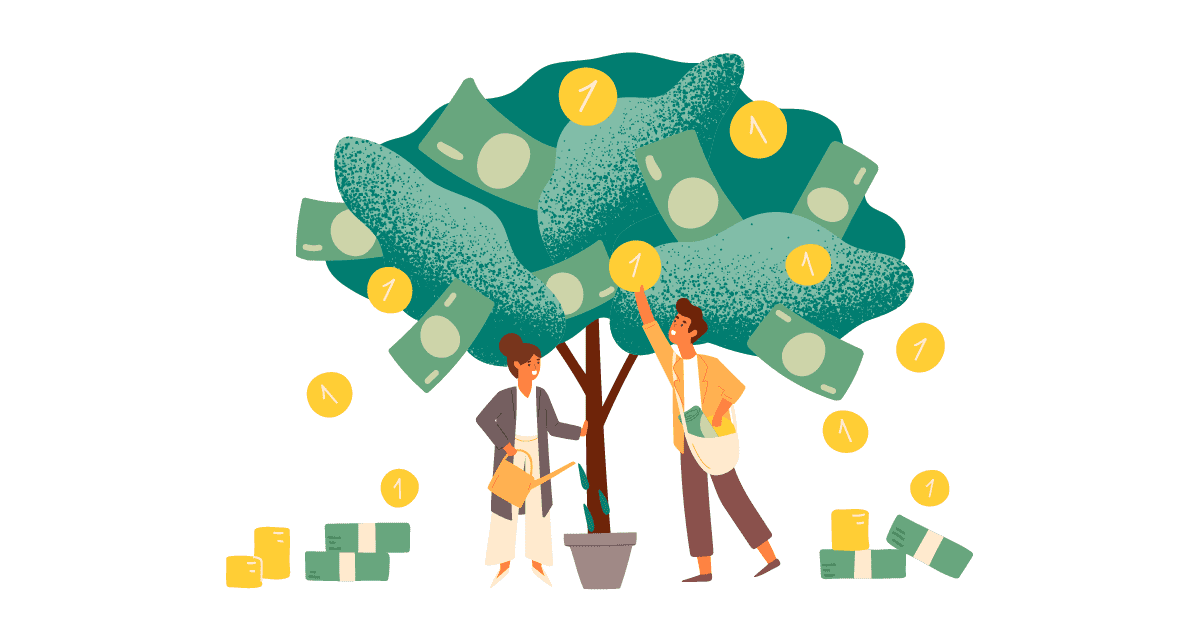- Jesi Bolandrina
- December 23, 2021
Let’s start this off with the truth: everyone has fallen for an impulse purchase at some point. Whether it’s a candy bar at the checkout counter, or a pair of shoes you didn’t really need, buying things can be a thrilling experience. Treating yourself every now and then isn’t an issue, but impulse spending can really blow your budget, hurt your savings, and push your financial goals back.
First, You Need to Acknowledge Your Tendency to Impulse Spend
Impulse spending isn’t always a selfish thing. While the first thing that comes to mind might be overloading your cart at Target, there are other ways you can be spending more than you mean to. It could happen if you’re always the person that says yes to supporting your friends’ children’s fundraisers. Or, it could be happening if you always offer to cover the bill when you eat out with friends. Or you might even be the type of person who constantly finds (and buys and gives) gifts to loved ones just out of the blue.
If you have a feeling that you *might* be someone who is spending more than they mean to, I challenge you to look at your last week of purchases. How many were necessary and planned? Were any of them things you didn’t need, or didn’t need at the moment? Did it put unnecessary strain on your credit card debt, or possibly dip too far into your savings?
If you want to teach yourself how to be more mindful of your expenses, you need to start by being honest with yourself. A few small purchases is okay, but if it’s a bigger problem, you’ll need to give it the proper attention to prevent it from continuing.
1. Minimize the Temptations
Before you can minimize your temptations, you need to think about where and when you find yourself spending unnecessary money.
For some, it’s in emails and online shopping. It can be easy to fall victim to flash sales, Instagram targeted ads, and online cart filling. If saying goodbye to your money is always a few clicks away, do yourself a favor and think of ways you can avoid putting yourself into those positions. It could be by unsubscribing from some of those newsletters with “can’t miss deals.” Or maybe you can opt to not let a site remember your payment method so you actually have to get up and get your wallet each time.
If you’re an in-person splurger, there are other tricks you can use. For me, I try to put blinders on when I enter impulse purchase areas (like the candy aisle at a grocery store or the everything-from-candles-to-mugs lines at TJ Maxx).
Either way, the best way to try to curb impulse spending is to only shop when there’s actually something you need. If you need one thing and come home with twenty each time, you’t not setting yourself up for success.
2. Make (and Stick To) a Realistic List
Making a list when you need to shop seems like a no-brainer. But the difficult part can be actually sticking to it.
Some people may find value in making a list and only shopping when it’s a significant size. This can help going to the store for “just coffee creamer” and coming back with a bag of other goodies. When you already have a long list of items you need, you could distract yourself from veering off course by getting the satisfaction of checking things off your list as you go.
On the other hand, making short focused trips to the store can also be beneficial for someone trying to stop themselves from buying more than they need. If you’re picking up a new pack of socks that you need, there’s no reason for you to take a detour into the electronics aisle. Knowing exactly what you’re looking for can help you stay focused and leave with what you came for.
3. Find Budgeting that Works for You
Making a budget can be a challenge all on its own. In simplest terms, your budget should be your chance to look at how much money you make and compare it to the money you need to spend. That helps you figure out what you can do with the rest (savings, leisure, etc). Not only is it important to have a budget for yourself in general, it’s also helpful to have a budget when you shop.
This often goes hand-in-hand with making your shopping list. When you know what you need to get, you can make a reasonable guess as to how much money you need to spend. When you know that, you can hold yourself accountable to spending near that amount.
If you have trouble holding yourself accountable just by the numbers alone, consider withdrawing cash and using it when you shop in-person. It can be cumbersome, but only having exact cash on-hand can be an easy way to physically prevent yourself from overspending or impulse spending.
4. Consider an Accountability Buddy
This trick doesn’t always work for everyone, but I’m suggesting it because I’ve found a lot of value in using it. Consider having an accountability buddy (or accountabilibuddy if you’re into smashing words together like I am). This is someone you can trust and turn to when you feel like you need extra help or support.
I do a lot of online…browsing (not always shopping). I am often tempted to purchase things, but I have a close friend who I can talk candidly about money with. She and I both know that we’re trying to be financially responsible. So when we find things we like and want to buy, we often send the links to each other and talk about the item. Most of the time, just sharing our interest in something is enough to get us to move away from the temptation of adding it to our cart and purchasing. Sometimes, though, we will confess that we’re really thinking about getting it. And we trust each other to give honest advice (“Yes, it’s something you would hate to miss out on!” or “No, think about what you’re saving up for and how this could set you back.”)
This works for us because we have a strong relationship where we are comfortable enough to trust each other with honest feedback, but also respect each other enough to not judge or overstep. If you’re thinking about having a parent, sibling or spouse be your accountabilibuddy, just make sure you can draw healthy lines and navigate some potentially tough situations.
At the End of the Day, Be Honest With Yourself
No one knows your motivations and finances better than you. If you know you have trouble resisting impulse spending and want to do something about it, great! These tricks are things I’ve found helpful and I hope you can find some value in them as well. But a lot of it will come down to trial and error as you figure out what’s right for yourself. Finding your path to financial freedom is a very personal journey. You’re not alone, but you do have the biggest say in how you get there.
About the Author: Jesi Bolandrina is the Content Marketing Manager at Jobble. As a former gig worker, she knows how hard it can be to feel like you know what you’re doing in an ever-changing workforce. She’s your go-to for news and information from career development, to health and wellness, to finances and more. She curates Jobble’s blog, articles and is the editor of The Everyday Hustle newsletter. If you have any ideas for topics Jobble should cover, let her know.










